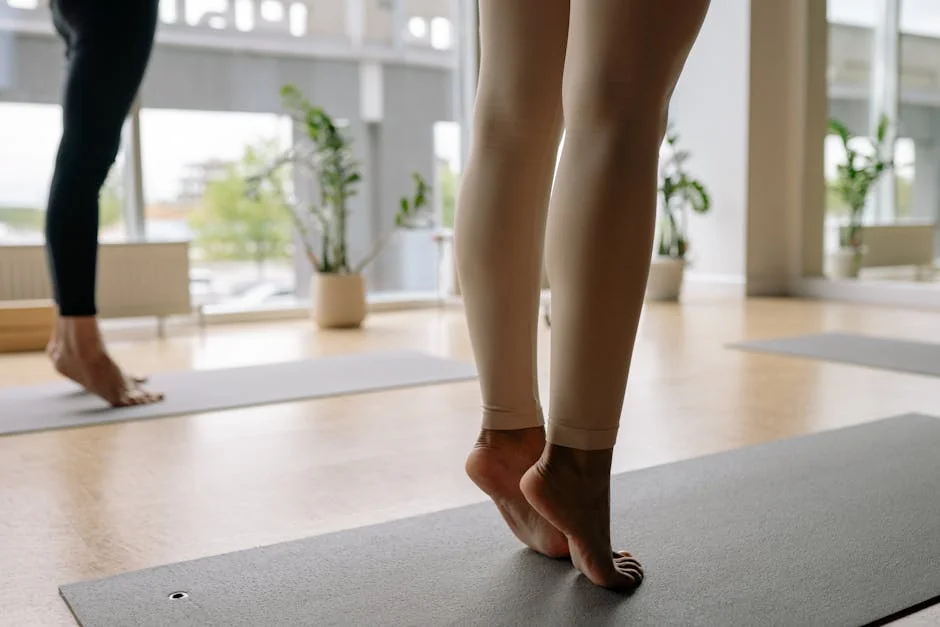Feeling overwhelmed has become the new normal. In the constant hum of notifications, deadlines, and to-do lists, your mind is likely running a marathon without a finish line. What if you could find a simple, scientifically-backed way to hit the pause button and reclaim a sense of calm and control? This is the power of mindfulness meditation. It’s not about emptying your mind, but about training your attention to anchor in the present moment without judgment.
In this guide, we will explore the compelling evidence for how mindfulness meditation practices have been shown to create profound, positive changes in both your mental and physical well-being. We’ll move beyond the buzzwords and dive into the concrete benefits, from dissolving stress and sharpening your focus to improving your sleep and even enriching your relationships. Get ready to discover how a few minutes of daily practice can truly transform your daily life.
Reduce Stress and Cultivate Calm: The Foundational Benefit
When stress hits, your body releases cortisol, triggering the "fight-or-flight" response. While useful in short bursts, chronic high cortisol wreaks havoc on your health. This is where mindfulness becomes a powerful tool. Mindfulness meditation practices have been shown to directly counter this stress response.
Studies consistently demonstrate that regular practice can lower cortisol levels in the body. By focusing on your breath or bodily sensations, you activate the parasympathetic nervous system—your body’s "rest-and-digest" mode. This shift signals to your body that it is safe, dialing down the physiological alarms of stress. For a deeper look at the specific effects, see how mindfulness meditation has been found to reduce stress and its physical impacts.
- Try this now: Take just one minute to focus solely on your breath. Notice the sensation of the air moving in and out. When your mind wanders, gently guide it back. This simple act is a mini-reset for your nervous system.
Sharpen Your Focus and Enhance Cognitive Performance
In a world of endless distractions, maintaining focus is a superpower. The good news is that mindfulness is like weightlifting for your attention muscle. Neuroscientific research reveals that mindfulness meditation practices have been shown to physically thicken the prefrontal cortex, the brain region responsible for higher-order functions like attention and decision-making.
This isn't just a physical change; it translates to real-world benefits. Regular practitioners find it easier to:
- Sustain attention on demanding tasks.
- Improve their working memory capacity.
- Filter out irrelevant distractions.
Whether you're preparing for a presentation or trying to complete a complex project, a sharper focus leads to better performance with less mental fatigue. If you're new to this, a guide on meditation to clear the mind can be a perfect starting point.
Boost Emotional Health and Build Resilience
Mindfulness doesn't eliminate difficult emotions; it changes your relationship with them. Instead of being swept away by a wave of anxiety or sinking into sadness, you learn to observe these feelings with curiosity and without immediate judgment. This creates a crucial space between a trigger and your reaction.
Through this process of decentering, mindfulness meditation practices have been shown to significantly reduce symptoms of both anxiety and depression. This is tied to the brain's neuroplasticity—its ability to rewire itself. By consistently practicing non-judgmental awareness, you strengthen neural pathways for emotional regulation, building a foundation of resilience that helps you navigate life's inevitable ups and downs with greater stability.
Improve Physical Well-being and Sleep Quality
The benefits of a calm mind extend deep into your physical body. The mind-body connection is powerful, and the stress-reduction from mindfulness has direct physical consequences. For instance, mindfulness meditation practices have been shown to contribute to lower blood pressure and improved cardiovascular health.
One of the most sought-after physical benefits is better sleep. Lying awake with a racing mind is a common form of insomnia. Mindfulness addresses this directly by helping you quiet the internal chatter. By practicing a body scan meditation or simply focusing on the breath in bed, you can ease the transition into sleep, resulting in not only falling asleep faster but also enjoying a higher quality of rest throughout the night.
Foster Better Relationships Through mindful Communication
Your relationships are profoundly impacted by your ability to respond wisely instead of reacting impulsively. Mindfulness cultivates the "pause" that allows you to choose your words and actions. When you are more present, you become a better listener.
By developing a stance of non-judgmental awareness toward your own experience, you naturally extend that to others. This is why mindfulness meditation practices have been shown to increase empathy and compassion. You become more attuned to other people's feelings and perspectives. This leads to more patient, understanding, and effective communication, strengthening your connections with partners, family, friends, and colleagues.
Getting Started: Your First Steps with Mindfulness
The evidence is clear, and the best part is that anyone can start. Remember, consistency is far more important than duration. Even five minutes a day can create a shift.
Here are a few simple ways to begin your practice:
- Focused Breathing: Sit comfortably and focus your attention on the physical sensation of your breath. When your mind wanders, gently return to the breath.
- Body Scan: Slowly bring your awareness to each part of your body, from your toes to the top of your head, noticing any sensations without judgment.
- Mindful Walking: Take a short walk and focus entirely on the experience—the feeling of your feet on the ground, the air on your skin, the sights and sounds around you. You can learn the specific steps to meditation or try a dedicated walking meditation for a more structured approach.
Start small, be kind to yourself when your mind wanders (it's part of the process!), and watch as these small moments of presence begin to transform your day.
In summary, the evidence is compelling: mindfulness meditation practices have been shown to offer a powerful, accessible toolkit for enhancing mental and physical well-being. The research consistently demonstrates tangible benefits, from reducing the physiological symptoms of stress and improving emotional regulation to sharpening cognitive focus and fostering greater self-awareness. These are not abstract concepts but practical outcomes achievable through dedicated practice. The core message is clear: by consistently turning our attention inward, even for a few minutes each day, we can fundamentally reshape our relationship with our thoughts and experiences, moving from a state of automatic reaction to one of conscious response. This journey does not require perfection, only persistence. The path toward a more centered and resilient life is available to everyone, beginning with a single, mindful breath. We encourage you to take that first step today, exploring the simple techniques outlined to discover the profound calm and clarity that resides within.



